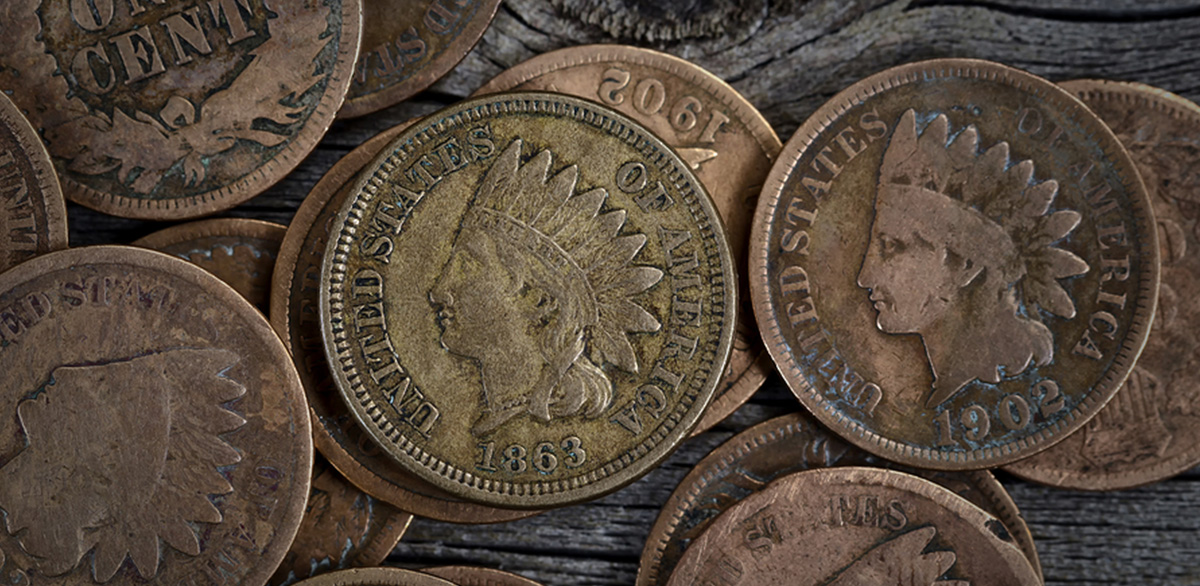
An extremely rare 1893-S Morgan Silver Dollar sold at auction for $414,000 in 2001 and that same coin was sold again in 2008 for more than $1,000,000. You can buy a 1921 Morgan Dollar that looks “perfect” for less than $200. Both coins contain fine silver that has a melt value of about $15.00 based upon silver’s current spot price of roughly $20.00 per ounce.
Investing in rare gold and silver coins
Bullion coins like the American Gold Eagle or the Canadian Silver Maple Leaf are very appealing to the eye, but are rarely worth much more than the spot price of the precious metal. On the other hand, rare or collectible coins, like the Morgan Silver Dollar or Peace Dollar, can have a significant value above the intrinsic value of the gold or silver they contain. If you decide to invest in precious metal coins for their numismatic value, the price you pay will depend on both its rarity and its condition.
Rarity
Rarity is usually not in dispute when valuing coins. Coins that have a small mintage are more rare than coins with a large mintage. Within any given year, you may have the same coin minted in different quantities by two or more of the nation’s mints. Rarity is determined not only by the total number of coins minted in a given year, but also by the amount of coins minted in San Francisco, Denver, Philadelphia or any of the other U.S.mints.
Condition
Collectors will pay more for rare coins in excellent condition. However, excellent is a relative term and does not really give an accurate description of a coin’s condition. In 1949, Dr. William Sheldon created a 70-point scale for grading coins that has become the standard in the industry. The Sheldon Scale is used by the Numismatic Guaranty Corporation (NGC) and the Professional Coin Grading Service (PCGS), the two most prestigious coin grading services in the world.
How are coins graded?
Highly trained and highly skilled professional coin graders examine each coin under magnification and look for even the smallest flaws. Words on the coin may be hard to read, the relief may be worn smooth or the coin may have any number of blemishes. Once a coin has been examined and graded, it is encapsulated into a protective plastic holder (slab) along with a label with a grade that is certified by the grading service.

Everything you need to know to get started in Precious Metals
Learn how precious metals can strengthen your portfolio, protect your assets and leverage inflation.
Sheldon Scale
Dr. William Sheldon’s coin grading scale consists of a number from 1-70 as well as a few short descriptive words to give it meaningful context. If a coin is assigned a P-1 rating it is described as “Poor” on the scale. An EF-40 grade is in the middle of the scale and is designated as “Extremely Fine” and an MS-60 grade is a coin in mint condition.
P-1 (Poor)
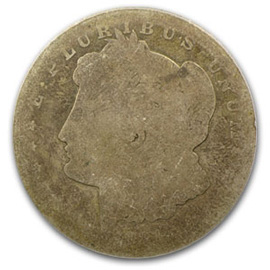
Badly damaged or worn so that type is only barely discernible
FR-2 (Fair)
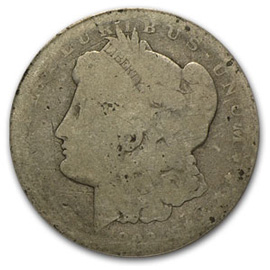
Badly damaged or worn so that type and date are barely discernible
AG-3 (About Good)
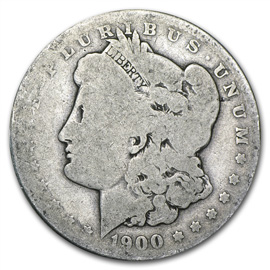
Type and date are discernible but may be worn so not readable
G-4 to G-6 (Good)
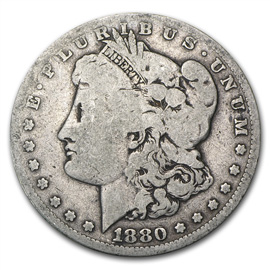
Can see outlines and features but coin shows heavy wear
VG-8 to VG-10 (Very Good)
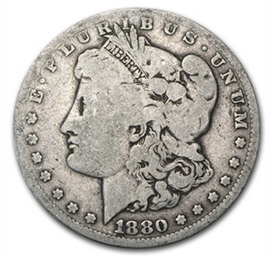
Has a full rim and discernible features but still is significantly worn
F-12 (Fine)
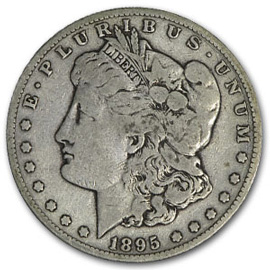
Rim is well defined and features easily seen. Has moderate wear
VF-20 (Very Fine)
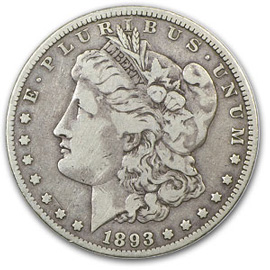
Clearly readable with light wear on legends, Wear on high points
VF-30 (Good Very Fine)
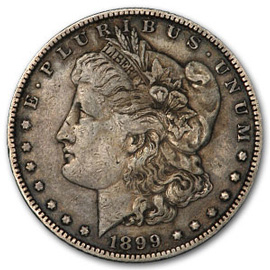
Clear legends with lightly worn high points
EF-40 (Extremely Fine)
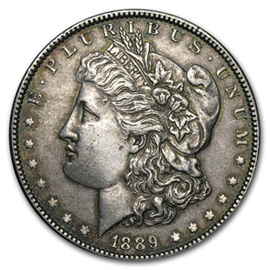
Sharp legends with slight wear on high points
XF-45 (Choice Extremely Fine)
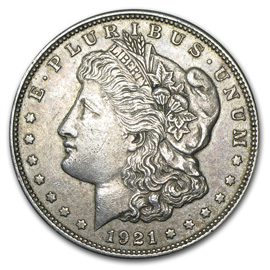
Clear and sharp legends, slight wear, appealing to the eye
AU-50 (About Uncirculated)
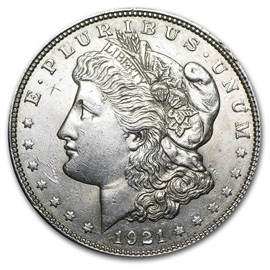
Sharp legends, trace of wear, some of mint luster remains
AU-55 (Good About Uncirculated)
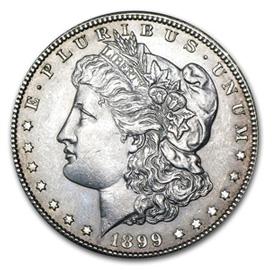
Sharp legends, hint of wear, half of mint luster remains
AU-58 (Choice About Uncirculated)
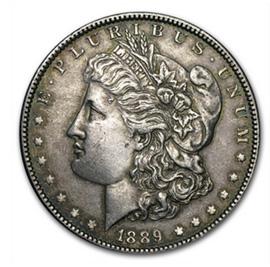
Hint of wear, full mint luster, eye appealing
MS-60 (Mint State Basal)
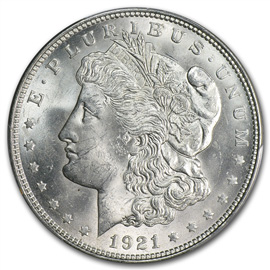
Free of any wear but not very attractive to the eye
MS-60 – MS-70 (Mint State Coins)
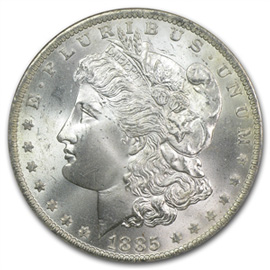
Graded on luster and eye appeal plus any tiny imperfections
Views on Grading
Although you can be certain that you are getting an expert opinion when you pay to have a coin graded by a third-party service like NGC or PCGS, ultimately you must remember that it is still an opinion. While there is not likely to be more than a one or two point difference on the Sheldon Scale, two grading services, or two different people within the same grading company, can grade a coin differently.
If you feel that your coin was given a lower grade than it deserves, you can ask to have it re-graded by the original service or submit it to another grading service for a second opinion. On low grade coins, it is usually not worth the added expense to get a slightly higher rating. However, on mint state coins, one level up or one level down could means thousands of dollars in value.


